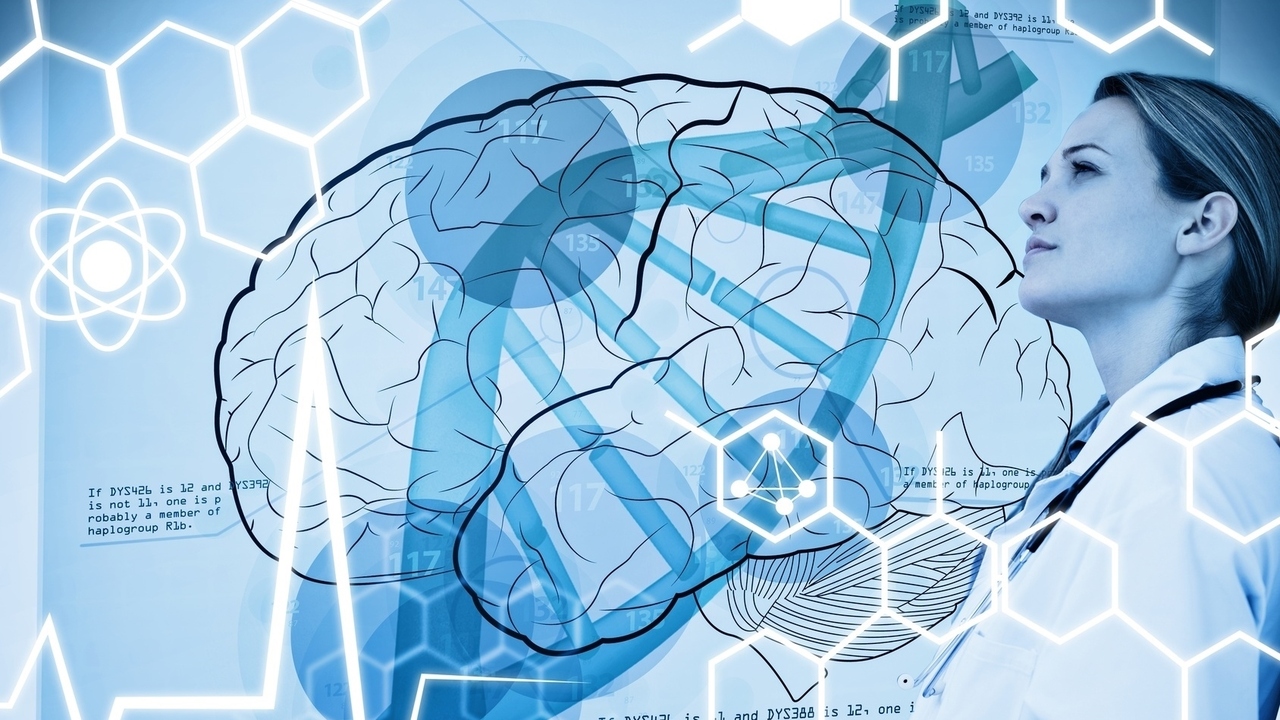 Benis Arapovic/PhotoSpin
Benis Arapovic/PhotoSpin
We're all concerned about our memories, especially as we age. Do you know why our memory changes? It has to do with brain cell connections in the brain.
When we are as young as 20 years of age, our brain cells connections begin to decline and by age 45 they are declining very rapidly. This can lead to more frequent forgetfulness, poor concentration and slower reaction times.
We asked Dr. Bruce Daggy, Adjunct Professor in the Nutrition, Food, and Exercise Sciences Department of Florida State University to answer questions about what normal changes in brain functionare, and when we should go to the doctor to see if we have a problem.
In this first of a two-part interview, we're talking about what happens to our brains that can cause us to become more forgetful. Next week we will look at what we can do to help us remember.
EmpowHER:
What is happening physically in the brain that causes our brain to make us more forgetful?
Dr. Bruce Daggy:
Our brains peak in volume at about age 20, and then slowly begin to shrink. After about age 50, that rate of shrinkage accelerates. Typically this is due to the loss of connections between the brain cells or neurons.
Neurons are designed to communicate with each other, and each one is in contact with hundreds or thousands of its neighbors. It is via these connected pathways that we store memories and process information.
As we age, we are slowly losing these connections. Also, our brains demand a lot from the circulatory system.
Although the brain is only about 2 percent of body weight, it can demand 20 percent or more of the blood circulation. All that chatter between the brain cells requires plenty of oxygen and nutrients from the blood supply.
As your cardiovascular system ages, it can impact the brain as well. And disease processes that we don’t associate with the brain, like type 2 diabetes, also increase the risk to brain health.
EmpowHER:
Do people need to be worried about forgetting things?
Dr. Bruce Daggy:
Worrying about it might only make things worse. Anxiety and stress are not good for memory. But empowering yourself with the knowledge that there are steps you can take to maintain mental acuity is a good place to start.
EmpowHER:
Is forgetting part of the normal aging process or is it always disease-related?
Dr. Bruce Daggy:
Some memory loss is just a normal part of aging. If it stays minor, we can laugh about it. But if the lapses of memory become more frequent and unusual, that could be a sign of a more serious problem.
EmpowHER:
How can people tell the difference between normal forgetfulness and a disease like Alzheimer's or dementia. Are the symptoms different?
Dr. Bruce Daggy:
The Alzheimer’s Association offers a list of ten early warning signs of the disease, and distinguishes these from what you may experience with normal age-related memory loss. That’s a good place to start.
Here are the ten warning signs from the Alzheimer’s Association for more information you can go to alz.org.
1) Memory loss that disrupts daily life
2) Challenges in planning or solving problems
3) Difficulty completing familiar tasks at home, at work or at leisure
4) Confusion with time or place
5) Trouble understanding visual images and spatial relationships
6) New problems with words in speaking or writing
7) Misplacing things and losing the ability to retrace steps
8) Decreased or poor judgment
9) Withdrawal from work or social activities
10) Changes in mood or personality
It is clear that our brain cell connections start to diminish as we advance in age but that doesn’t mean that we have diseased brains.
In the next article 5 Things You can Do To Improve Your Memory we will learn about what we can do to help maintain or improve our memories.
Live Vibrantly,
Dr. Dae
Dr. Dae's website: www.healthydaes.com
Dr. Dae's book: Daelicious! Recipes for Vibrant Living can be purchased @ www.healthydaes.com
Dr. Dae's Bio:
Dr. Daemon Jones is your diabetes reversal, hormones, metabolism and weight loss expert. Dr. Dae is a naturopathic doctor who treats patients all over the country using Skype and phone visits. Visit her or schedule a free consultation at her website www.HealthyDaes.com
Sources:
Interview with Dr. Bruce Daggy
Dr. Bruce Daggy has a Ph.D. in Nutritional Biochemistry from Cornell University and a B.A. in Biology from University of Virginia. He has authored about 80 publications and abstracts, and has developed 13 patents in his name. He serves as Adjunct Professor in the Nutrition, Food, and Exercise Sciences Department of Florida State University. He is a member of the American Society of Nutrition, a Fellow in the American College of Nutrition, and has assisted the Obesity Society, the American Diabetes Association, the American Association of Diabetes Educators, and other healthcare organizations in a variety of volunteer capacities.
Memory Loss & 10 Early Signs of Alzheimer's | Alzheimer's Association. N.p., n.d. Web. 6 Oct. 2014.
http://www.alz.org/alzheimers_disease_10_signs_of_alzheimers.asp
Reviewed October 7, 2014
by Michele Blacksberg RN
Edited by Jody Smith






Add a CommentComments
There are no comments yet. Be the first one and get the conversation started!